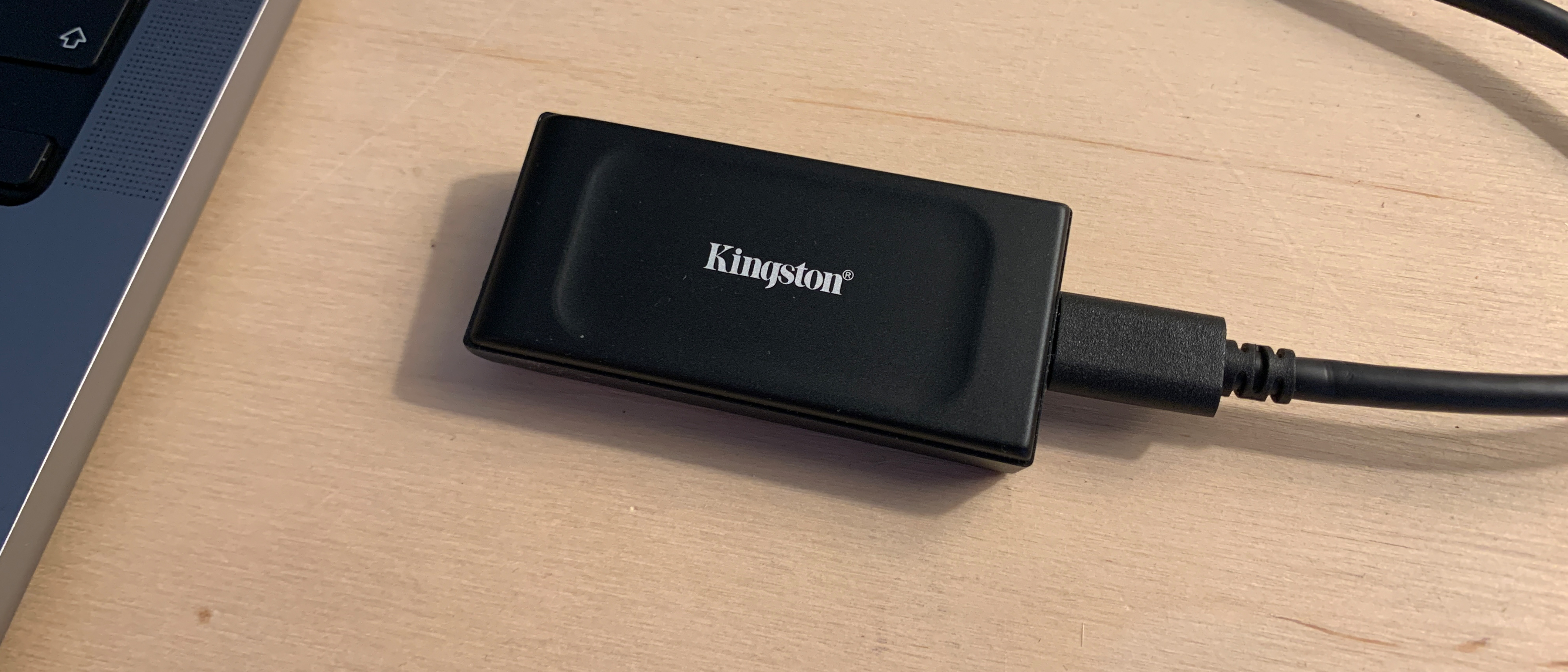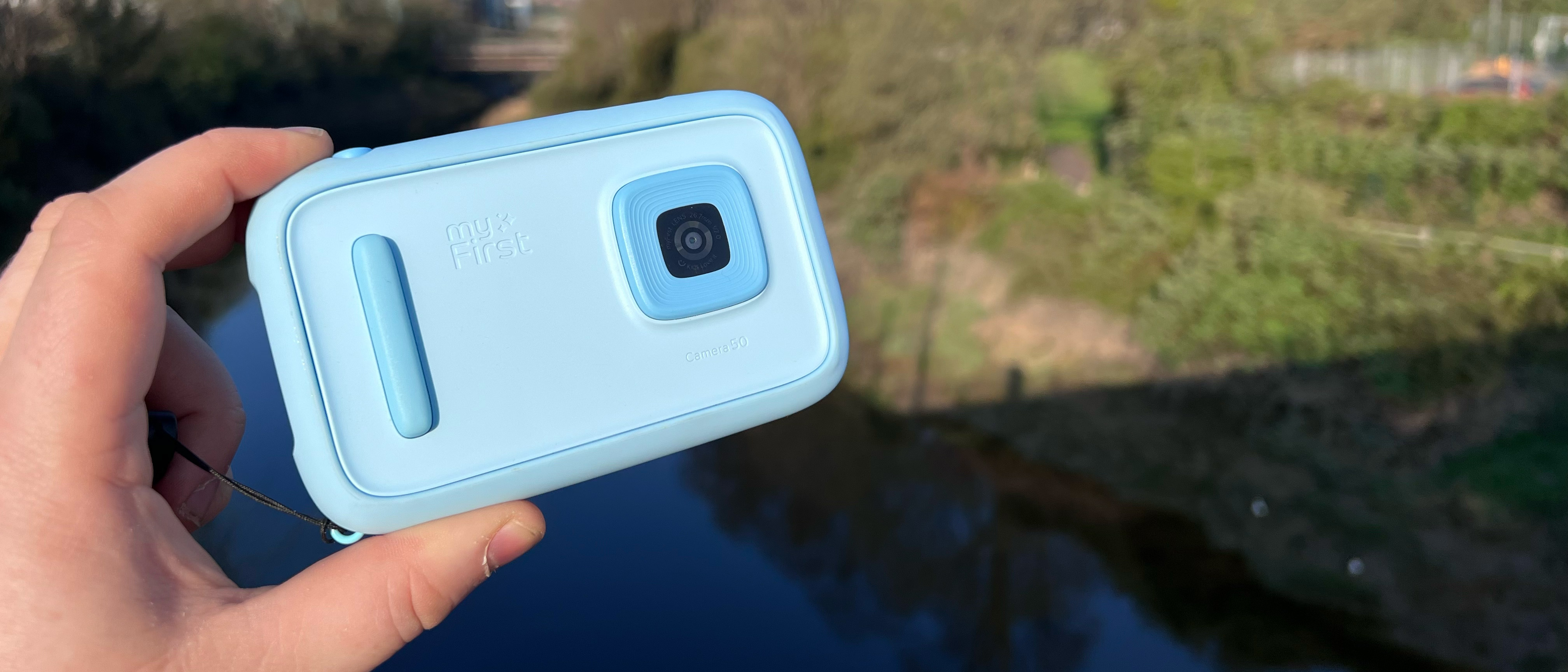Digital Camera World Verdict
The XS1000 has reasonable read/write speeds, solid construction, and an attractive price point. This all comes at a cost to other parts of the spec including the distinct lack of hardware encryption, no drop rating, and no mention of an IP rating. In many ways, that makes the purchasing of this SSD a bit of a gamble. Kingston only offers two storage capacity options for the XS1000, 1TB and 2TB. This is noticeably limited compared to their competitors.
Pros
- +
Portable
- +
Lightweight
- +
Reasonable read/write speeds
Cons
- -
No IP or drop ratings
- -
Tops out at 2TB capacity
Why you can trust Digital Camera World
Kingston offers two models of external Solid State Drive (SSD), the XS2000 and the XS1000. The XS2000 is the better of the two and retails at £52 for 500GB and £272 for 4TB, with options in between. The XS1000, on the other hand, costs £69 for the 1TB capacity and £106 for the 2TB. This is therefore the more affordable of the two Kingston options.
Interface: USB 3.2 Gen 2 (10GBs)
Capacity: 1TB, 2TB
Performance Sequential: Up to 1,050MB/s read, 1,000MB/s write
Operating temperature: 0°C to 40°C
Non-operating temperature: -20°C to 85°C
Weight: 28.7 g
Size: 69.54 x 32.58 x 13.5mm
The device is incredibly small and compact with a metal and plastic combination of parts. You’ll want to keep your eye on it as it’s so small that it’ll be very easy to misplace. In terms of build, it lacks any of the additional features that mark out a robust external SSD. There is no rubber sleeve, no soft-touch materials, and no IP rating for foreign objects such as dust and moisture. You might therefore want to consider whether this is truly a portable device.
While we’re on the subject of missing features, there’s also no hardware encryption. This is likely to put off all business users and any security-sensitive consumer. This is the same for the XS2000 so it’s obviously not part of their business plan for this range.
On a better note, the read/write speeds of 1,050MB/s and 1,000MB/s respectively are more than respectable. Of course, the XS2000 is faster but you’ll pay extra for the privilege.
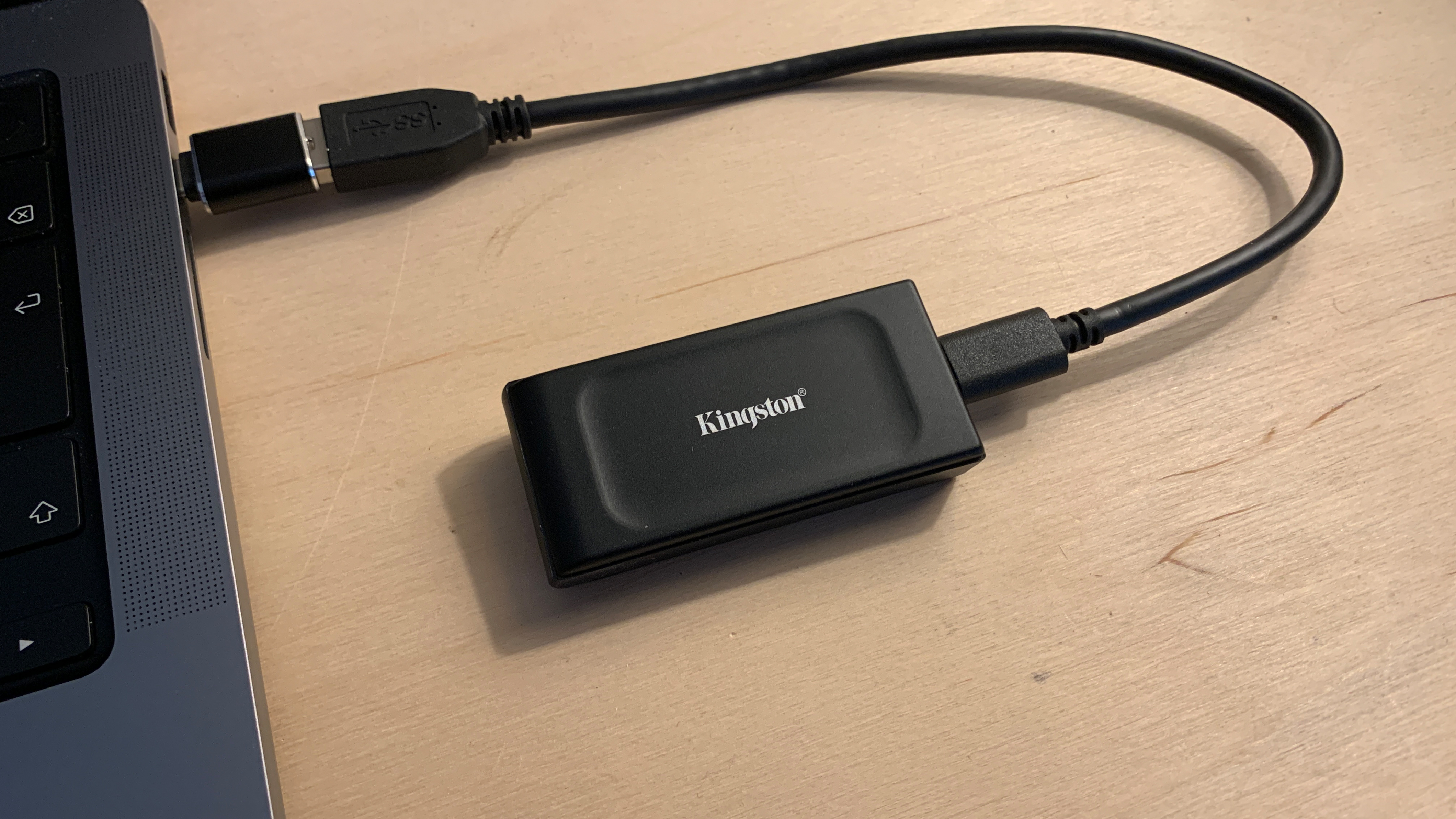
Kingston XS1000: Key features
The XS1000 comes with two different storage capacities, 1TB and 2TB. If you want a smaller (500GB) or larger (4GB) capacity then you’ll need to opt for the XS2000. The fact that it tops out at 2TB seems a little surprising considering most competitors are now offering up to 4GB or even now 8GB. Maybe it’s to separate out their two models but it seems lacking.
The XS1000 has 1050MB/s read and 1000MB/s write speeds. The interface is USB 3.2 Gen 2 which offers a transfer rate of 10 Gbps over the existing USB-A and USB-C connectors. The fact that it offers backwards compatibility to USB 3.2 Gen 1 is a big plus as it enables seamless connectivity with legacy devices.
One area that I think this external SSD is lacking is that there is no hardware encryption. This seems crazy in this day and age where keeping data secure is of paramount importance to most people, especially business users storing sensitive data. Competitors like SanDisk and Samsung have ensured their latest models have included this necessary protection.
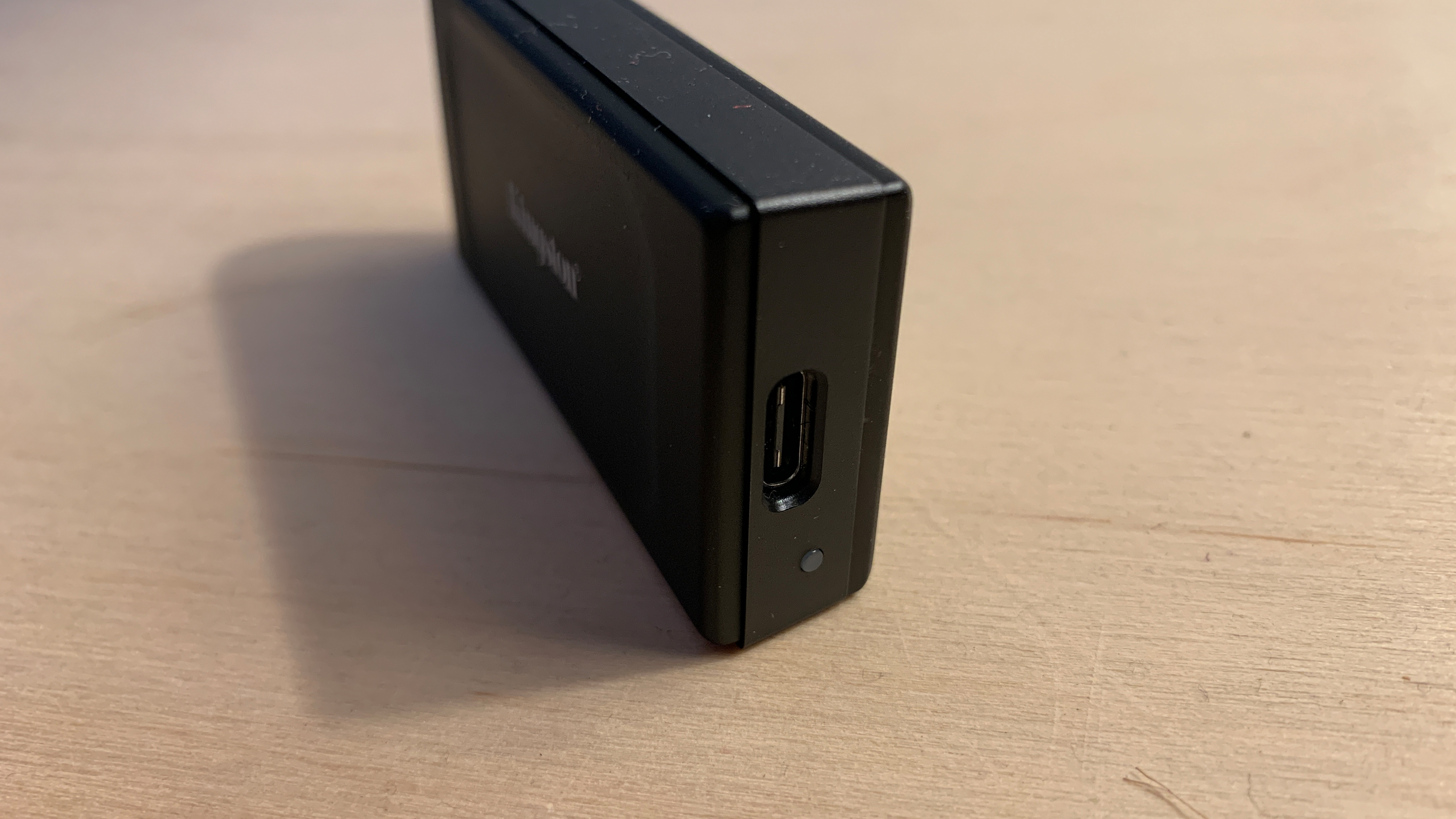
Kingston XS1000: Design & Handling
The XS1000 is small and lightweight, two qualities that make it super portable. The case is only 69.54mm long, 32.58 wide, and 13.5mm thick. This will fit easily into any pocket whether that be your trouser pocket or a pocket in your laptop bag. The weight is less than 30g so there’s no risk of adding any amount of uncomfortable weight to your on-the-go setup.
The case itself is made of metal and plastic with a seriously robust construction. I tried pushing the exterior casing in to damage it but it didn’t budge at all. The contents inside are sure to be safe. I have a personal preference over soft-touch exteriors but this doesn’t have any of that. I think soft-touch makes it feel like it’ll withstand a few drops and knocks but in reality this device will be fine in those circumstances too.
The unit itself has a USB-C port at one end which is recessed slightly giving it a little extra protection over unwanted dust or liquid that might fall on it. The cable included in the box is a USB-C to USB-A type although you can use a USB-C to USB-C cable if you have one.
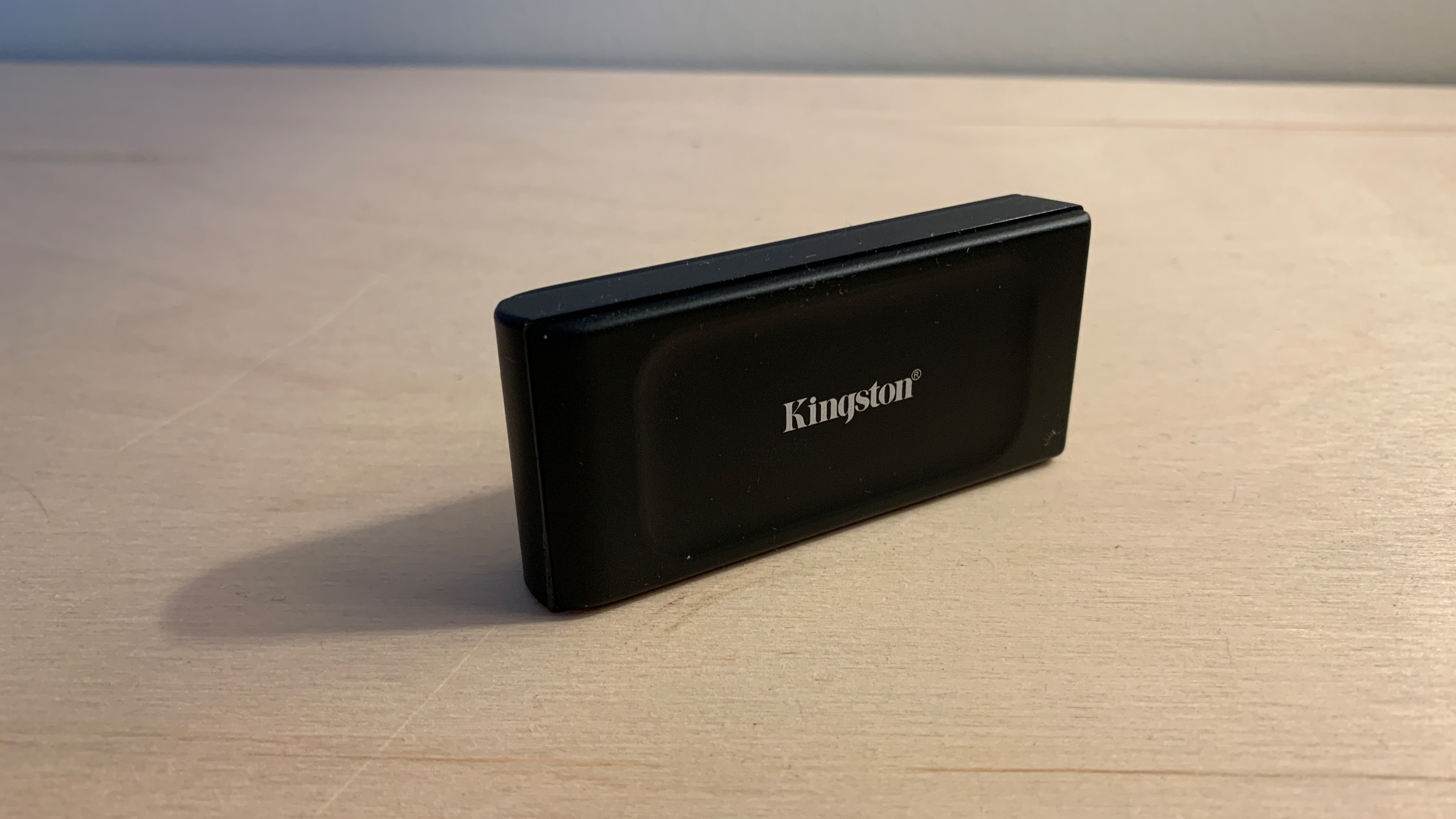
Kingston XS1000: Performance
One of the most important features that will concern most users is the read/write speeds of an SSD. The XS2000 was released first and boasted 2000MB/s read and 2000MB/s write speed. The XS1000 is half that at 1050MB/s read and 1000MB/s write. This is far from the quickest on the market but it is faster than the recently released Samsung T5 Evo which we’ve also reviewed.
This SSD will work on USB 3.2 Gen 1 but the transfer speeds are going to be around half the advertised speeds of the Gen 2 alternative.
There is no drop rating which suggests Kingston is not too concerned about this drive needing to withstand a drop. The fact that this is a portable drive would surely suggest this is an oversight. It also has no mention of an IP rating which further communicates that this is most certainly a no-thrills SSD.
The XS1000 and XS2000 are identical in terms of operating and storage temperatures. The operating temperature for this SSD is between 0°C to 40°C and although it’s unlikely to go beyond the 40°C it isn’t as high as the Samsung T5 Evo for example. The storage temperature also only goes down to -20°C rather than -40°C for the T5 Evo.
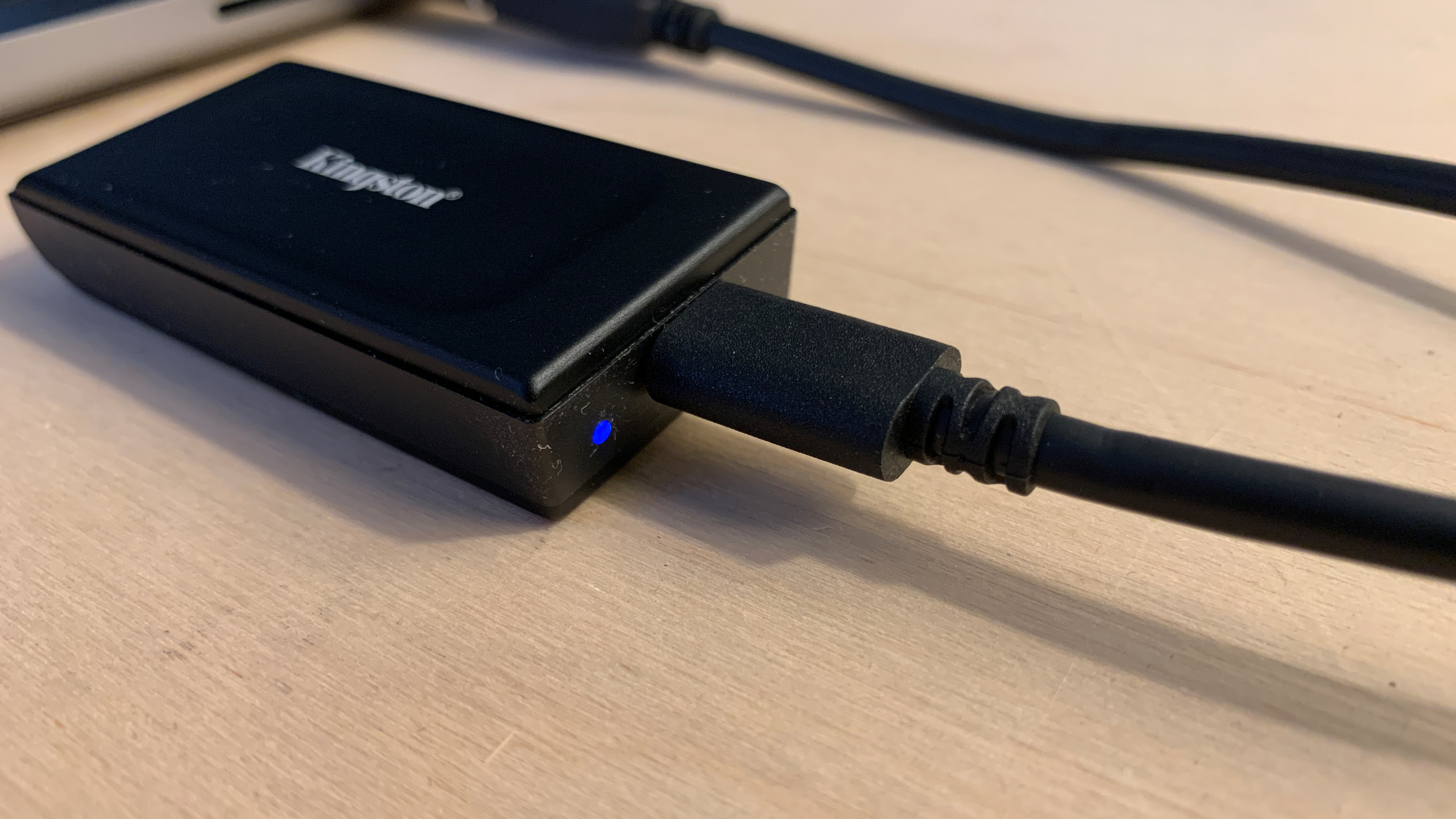
Kingston XS1000: Final Verdict
The XS1000 is a no-thrills external SSD that tops out at 2TB capacity. The read/write speeds of 1,050MB/s and 1,000MB/s respectively are not too bad but there are faster alternatives. This device is let down by a number of things including the maximum capacity of 2TB, the lack of hardware encryption, and no mention of an IP55 rating. Despite all this, at this price point, it’s difficult to complain.
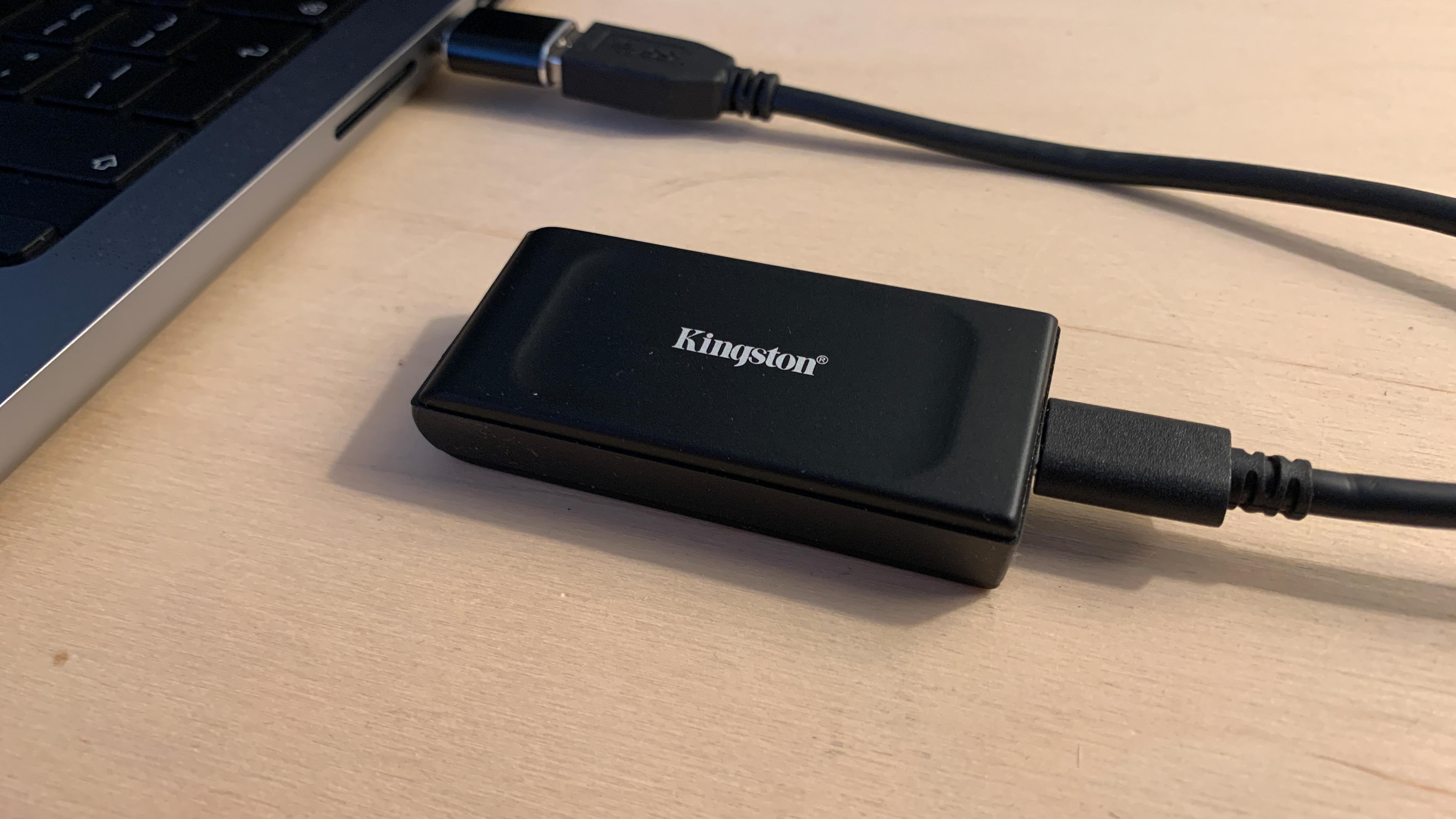
Alternatives
Samsung’s T7 Shield is probably the closest competitor at this price. It is larger in size but far more robust, largely due to its drop and IP65 ratings. Another alternative is the Netac ZX20 which although it has a maximum capacity of 1TB does have faster read/write speeds.

Paul is a digital expert. In the 20 years since he graduated with a first-class honours degree in Computer Science, Paul has been actively involved in a variety of different tech and creative industries that make him the go-to guy for reviews, opinion pieces, and featured articles. With a particular love of all things visual, including photography, videography, and 3D visualisation Paul is never far from a camera or other piece of tech that gets his creative juices going. You'll also find his writing in other places, including Creative Bloq, Digital Camera World, and 3D World Magazine.
